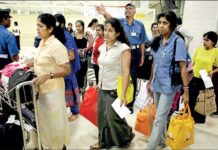Colombo, June 24 — Sri Lanka is calling on foreign investors to take advantage of a new $150 million renewable energy initiative backed by the World Bank Group, which includes political risk insurance from the Multilateral Investment Guarantee Agency (MIGA), a key World Bank affiliate.
The financing package is designed to attract international capital into Sri Lanka’s underdeveloped but high-potential clean energy sector, particularly in wind and solar power. Foreign investors participating in new renewable projects will benefit from MIGA’s political risk insurance, helping to safeguard against non-commercial risks such as currency inconvertibility, expropriation, and breach of contract.
“Investors need confidence to take bold steps in new markets,” said Muhamet Fall, MIGA’s Director of Operations. “Our guarantees will help de-risk projects and attract the private capital needed to scale up clean energy in Sri Lanka.”
The World Bank says $40 million of the total package is allocated specifically to de-risk payment obligations from the Ceylon Electricity Board (CEB), improving bankability and enabling project developers to secure financing on more favorable terms.
Foreign investors have a near-term opportunity, with tenders open until July 9 for two 50MW wind projects along the North-Western coast — part of a broader goal to add 1,000 megawatts of new renewable capacity and reach 70% renewable energy by 2030.
The initiative is expected to unlock over $800 million in private investment and includes grid modernization to ensure stability and support increased renewable penetration.
“Sri Lanka’s energy transition offers a significant opportunity for international investors,” said Imad N. Fakhoury, Regional Director for South Asia at the International Finance Corporation (IFC), another World Bank arm making direct investments under the program. “This is the time for private capital to step in — with the backing of strong guarantees and a government committed to energy reform.”
The government has signaled a shift toward open, competitive tendering to lower costs and break the hold of legacy feed-in tariffs. Recent auctions for smaller plants have seen strong competition, and officials are eager to see global players bring in capital, technology, and scale.
Power and Energy Minister Kanchana Jayakody said, “We want to create a level playing field that allows international investors to compete and bring down the cost of power generation for Sri Lankan consumers.”
The World Bank emphasized that the new package will support grid upgrades, boost energy access, stabilize prices, and help Sri Lanka reduce its dependence on expensive fossil fuels — all while delivering long-term investment opportunities for global clean energy developers.



